M.Sc. in Medical Radio Imaging: High demand, diverse career options, competitive salaries, and contributions to patient care and innovation.
Future Scope & Benefits: M.Sc. in Medical Radio Imaging Course
The Master of Science (M.Sc.) in Medical Radio Imaging is a specialized postgraduate program designed to prepare healthcare professionals for a dynamic and rewarding career in medical imaging and radiology. Graduates of this program are equipped with advanced knowledge and skills in diagnostic imaging techniques, making them integral members of healthcare teams. In this comprehensive guide, we will explore the future scope and the numerous benefits of pursuing this specialized program.
1. High Demand for Imaging Specialists:
The field of medical imaging is witnessing rapid advancements and innovations, leading to an increased demand for qualified imaging specialists. Healthcare facilities rely heavily on medical radiographers and radiologists to obtain accurate diagnostic images, monitor treatment progress, and make informed clinical decisions.
2. Diverse Career Opportunities:
Graduates of the M.Sc. in Medical Radio Imaging program have a wide range of career options to choose from, including:
Radiographer: Performing diagnostic imaging procedures such as X-rays, CT scans, MRI scans, and ultrasound examinations.
Radiologic Technologist: Operating imaging equipment and ensuring patient safety during procedures.
Radiology Supervisor or Manager: Overseeing radiology departments and managing imaging services.
Radiologist Assistant: Assisting radiologists in performing and interpreting imaging studies.
Teaching and Research: Pursuing careers in education and contributing to the advancement of the field through research.
Consultant: Providing expert advice on imaging protocols and quality assurance.
Hospital Administrator: Taking on administrative roles within healthcare institutions.
Advanced Practice Roles: With experience and additional certifications, graduates can specialize in areas such as computed tomography (CT), magnetic resonance imaging (MRI), or nuclear medicine.
3. Competitive Salaries:
M.Sc. in Medical Radio Imaging graduates typically earn competitive salaries. The exact salary can vary based on factors such as location, years of experience, specialization, and the type of healthcare facility. In India, medical radiographers can earn an annual salary ranging from INR 3 lakh to INR 10 lakh or more, depending on these factors.
4. Specialized Knowledge and Skills:
The program provides graduates with specialized knowledge and hands-on skills in various imaging modalities, enabling them to excel in their chosen fields. They are trained to operate advanced imaging equipment and interpret complex images accurately.
5. Personal Fulfillment:
Medical imaging professionals play a vital role in diagnosing diseases, detecting injuries, and improving patient outcomes. Being part of a healthcare team that positively impacts patients' lives can be highly rewarding and fulfilling.
6. Interdisciplinary Collaboration:
Medical radiographers work closely with radiologists, physicians, surgeons, and other healthcare professionals to provide comprehensive patient care. This interdisciplinary collaboration enhances the quality of healthcare services.
7. Continuous Learning and Professional Growth:
The field of medical imaging is constantly evolving with new technologies and techniques. Graduates are encouraged to engage in continuous learning, attend workshops, and stay updated with the latest advancements, fostering ongoing professional growth.
8. Contribution to Patient Care:
Medical radiographers directly contribute to patient care by producing high-quality images that aid in accurate diagnosis and treatment planning. They are an essential part of the patient care process.
9. Advanced Imaging Modalities:
As technology continues to advance, professionals with expertise in advanced imaging modalities such as MRI, CT, and nuclear medicine are in high demand. Specializing in these areas can lead to specialized career opportunities.
10. International Opportunities:
M.Sc. in Medical Radio Imaging is a recognized qualification globally. Graduates may explore job opportunities in other countries, particularly in regions experiencing shortages of skilled medical imaging professionals.
11. Research and Innovation:
The program equips graduates with research skills, allowing them to contribute to the development of new imaging techniques, protocols, and technologies. Their research can drive innovations in the field.
12. Leadership Roles:
With experience and further education, graduates can advance to leadership roles within radiology departments, taking on responsibilities such as departmental management, policy development, and quality control.
13. Enhanced Diagnostic Accuracy:
Medical radiographers play a crucial role in improving diagnostic accuracy by producing clear and precise images. Their work directly impacts clinical decisions and patient care outcomes.
14. Technological Advancements:
Advancements in medical imaging technology, including artificial intelligence (AI) applications, are transforming the field. Graduates with expertise in emerging technologies are poised to benefit from these developments.
15. Job Security:
The demand for medical radiographers is expected to remain high due to the continued need for diagnostic imaging services in healthcare settings.
 2 Years
2 Years
 Post Graduate
Post Graduate
 Medical
Medical
 Full Time
Full Time
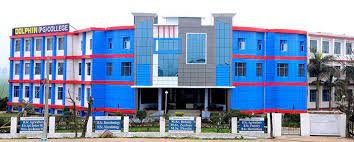
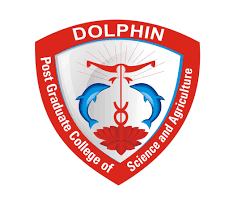
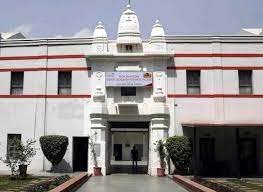
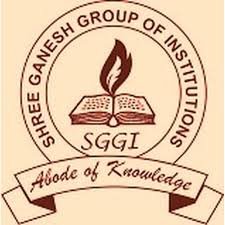

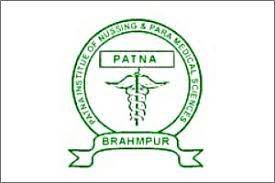

 back
back

